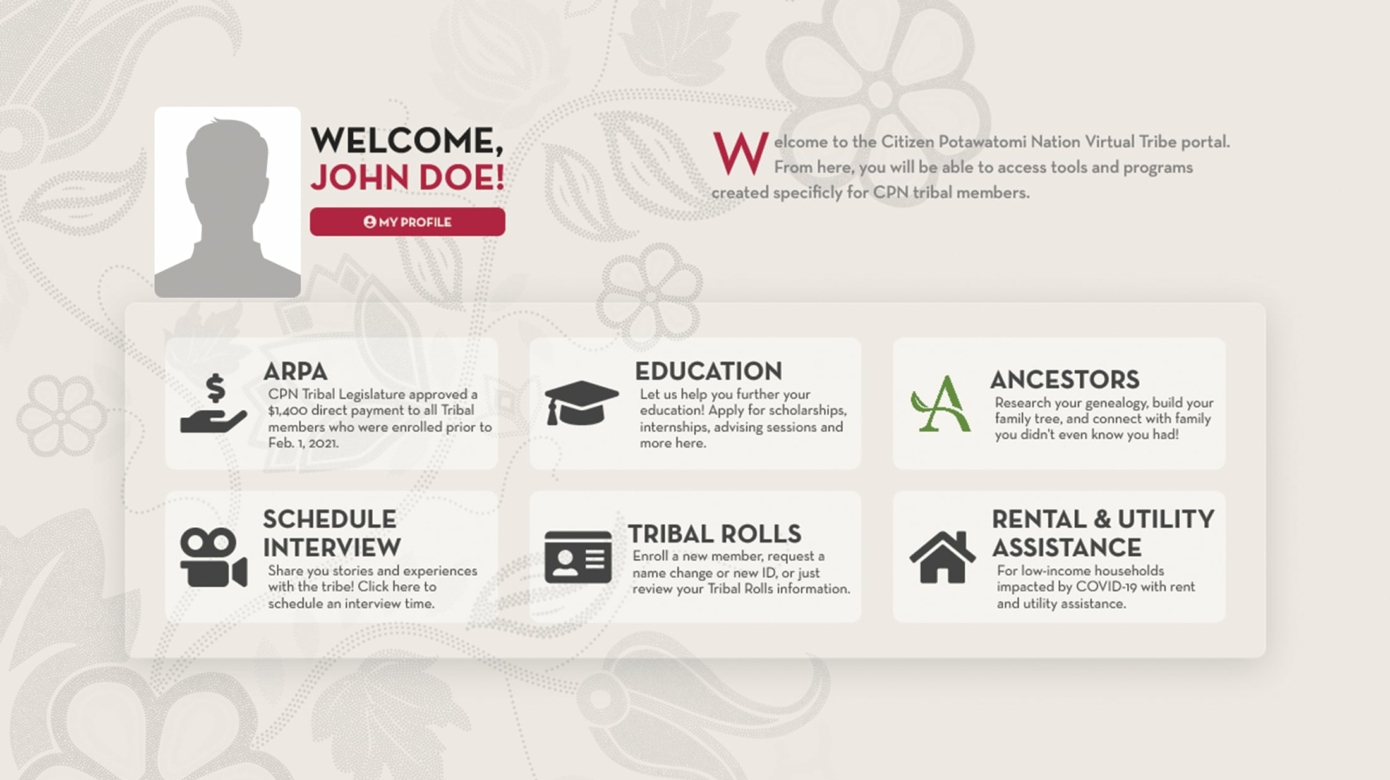The Virtual Tribe portal allows Citizen Potawatomi Nation tribal members to take greater control of their personal information and experience a more enriched environment for family history research.
CPN’s new portal is a single access point for members to submit or update their personal information and research family connections.
According to Christopher Abel, director of information technology, the idea began with the belief that people prefer to manage their personal information in a quick and convenient format. IT determined Tribal members needed the access and ability to submit their information electronically through the Nation’s online portal, which stores all the information in one central location.
“Being able to change their information online is the way the world is moving,” Abel said.
The team envisioned a program that would allow Tribal members to update all their personal information in one place, rather than contacting different individuals in several departments.
“Tribal members can verify it was changed in front of them on their screens,” he said. “It empowers them to manage those changes.”
Dr. Kelli Mosteller, CPN’s Cultural Heritage Center director, said IT has been working on the concept for years with other departments. Initially, Abel and his staff created a portal for education scholarship applications so Tribal members could apply, upload their documents and track their information. These department portal pages became more prevalent during the coronavirus pandemic as CPN began accepting applications for CARES Act and ARPA funds online. Applying this concept to the CHC seemed like taking the next natural step, Dr. Mosteller said.
Josh Michael and Nathan Hawkins, both web developers, as well as Jonathan Cervone, who is a software developer, played instrumental roles in creating the portal.
“They’ve worked to make the program as secure as possible, so that information is not at risk,” Abel added.
Cervone said while developing other department portals, the team strived to make everything easier and streamlined several different processes for everyone, from Tribal Rolls to Workforce Development & Social Services.
They envisioned giving Tribal members peace of mind, knowing their information is correct and they have control over it, Cervone added.
Ancestors
The CHC Ancestors portal assists Tribal members with family research, and provides information and documents about historical Potawatomi relatives.
“If you’re looking up your great-great-grandmother and you have a photo, you can upload that photo and others can see the information,” Dr. Mosteller said.
A challenge for the CHC came in dealing with information regarding non-living Tribal members. If Ancestors users find missing or conflicting information, it is not possible to contact that person for corrections.
“If government records such as the Bureau of Indian Affairs or the military have a birthdate listed differently, you can’t just call that person for the right information. Deep genealogical research is needed. We might have to seek out resources we don’t have,” Dr. Mosteller said.
However, the portal’s greatest benefit lies in making information formerly available only on paper accessible in a digital format.
“We’re very visual learners,” she said. Having those records digitized “has enriched the quality and quantity of family research.”
During a recent Howinkan interview, Dr. Mosteller expressed excitement about Ancestors, because it not only stores information in a central location but is user friendly, for Tribal citizens at home and CHC staff.
Access the Citizen Potawatomi Nation portal at portal.potawatomi.org. Find Ancestors under the “Resources” tab at potawatomiheritage.com.

